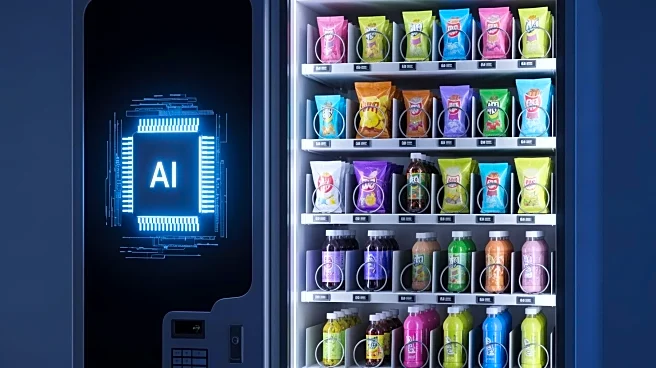What's Happening?
The vending industry is undergoing a transformation by integrating AI-driven personalization and smarter inventory management. This shift aims to blend traditional vending machine charm with modern technology
to meet contemporary consumer expectations. Operators are exploring opportunities in unattended retail spaces such as coworking environments and residential buildings. The industry is moving from analog to intelligent, always-connected devices, expanding product categories and focusing on sustainability and machine design. The discussion highlights the balance between innovation and accessibility, ensuring that modernization does not compromise the familiar appeal of vending machines.
Why It's Important?
The integration of AI in vending machines represents a significant shift in the retail landscape, potentially increasing efficiency and customer satisfaction. By offering personalized experiences and optimizing inventory, vending operators can enhance consumer engagement and streamline operations. This evolution could lead to increased profitability and market expansion, particularly in urban areas where unattended retail is gaining traction. The focus on sustainability and design also aligns with broader industry trends towards eco-friendly practices, potentially attracting environmentally conscious consumers.
What's Next?
As the vending industry continues to evolve, operators may face challenges in balancing technological advancements with maintaining the traditional appeal of vending machines. Future developments could include further expansion into new retail spaces and the introduction of more diverse product offerings. Stakeholders, including technology providers and vending operators, will likely continue to explore innovative solutions to enhance customer experience and operational efficiency.
Beyond the Headlines
The shift towards AI-driven vending machines raises questions about data privacy and the ethical use of consumer information. As machines become more connected, operators must ensure that data collection practices comply with regulations and protect consumer privacy. Additionally, the move towards automation may impact employment within the industry, necessitating discussions on workforce adaptation and training.









